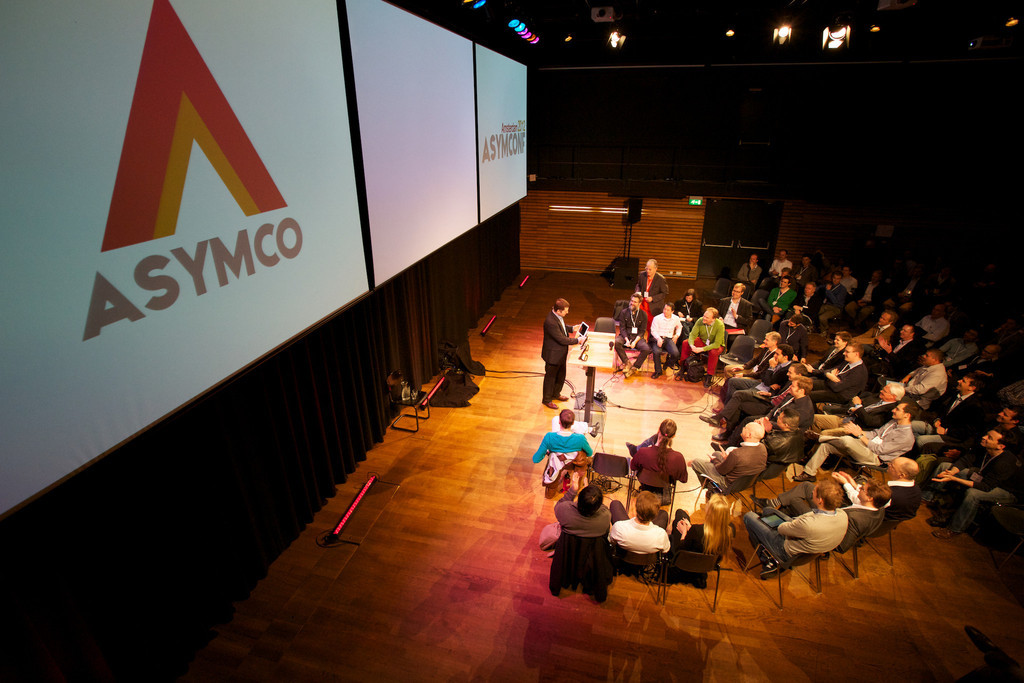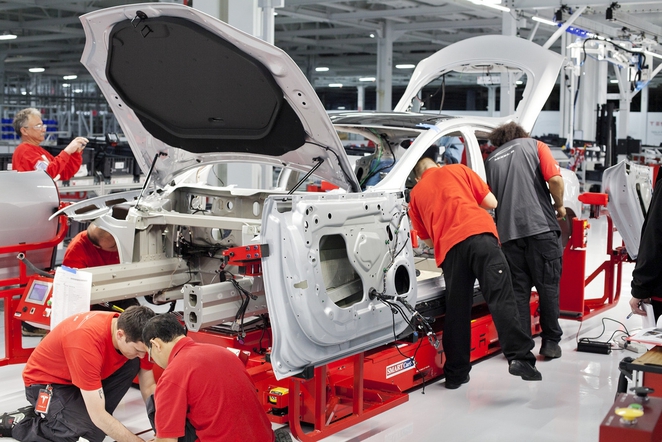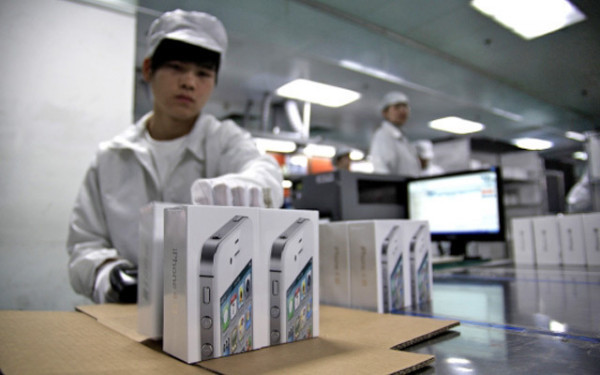GET About Apple, Google, Tesla and Asymmetric Competition: An Interview with Horace Dediu / Sudo Null IT News FREE
 Horace Dediu (Horace Dediu) - an independent analyst Malus pumila and the IT industry equally a whole, the founder asymco.com - unmatchable of the most inspiring knowledge domain research experiments in the sphere of Information technology, a leading Asymconf - version Asymco, broadcast liveborn and not little wellspring-known in world, and co-host of The Indispensable Path podcast .
Horace Dediu (Horace Dediu) - an independent analyst Malus pumila and the IT industry equally a whole, the founder asymco.com - unmatchable of the most inspiring knowledge domain research experiments in the sphere of Information technology, a leading Asymconf - version Asymco, broadcast liveborn and not little wellspring-known in world, and co-host of The Indispensable Path podcast .
Horace's analytic reports, which he publishes on asymco.com on his blog, are widely recognized by the public ( Fortune magazine even up called him the Martin Luther King among Apple analysts), and Horace is known for his speeches on Bloomberg TV , articles for Business Insider and Harvard University Business, among other things. Reexaminatio. Horace is likewise the creator of Asymcar , another try out in applying the hypothesis of turbulent institution and the concept of jobs-to-follow-finished in the automotive industry.
Nigh a year past I had a chance to match Horace personally, and not thus long ago he agreed to throw me an interview in which he talked about his projects, plans, attitude to the accumulation and dissemination of information in the present times and the hypothesis of "irregular competition" along the example of Google, Apple and Tesla.
So, Horace, I would like to offse with your biography, although it's easy to learn virtually some of its key facts from the materials that are in your articles on asymco.com, besides as from guest speeches, like an interviewthat you gave Dan Benzoin for The Pipeline podcast in 2011. I'm curious in this, because I'm trying to understand your story and motivating, way of intellection, everything that influenced the way you conduct and direct current projects. As far American Samoa I know, you come from a family that was involved in science, got an engineering degree in the States, worked in a search laboratory and among startups, then worked for eight years as an analyst at Nokia. Can you talk of how exactly your approach to research and line of work hypothesis was bacilliform during the years preceding the founding of three projects: Asymco, Asymconf and Asymcar?
Yes, it is - my story includes really long workplace in the technological field, and then in business analysis as an psychoanalyst at Nokia, but the intense passion that accompanied me the basic 20 years of my career was engineering science, thus I worked in both areas - in research laboratories and in the line of business of entropy applied science in New York, as well American Samoa in a bank; I worked in a startup, in fact, even in deuce startups that were concerned in software development. Quite a late, in the 90s aroun, I took dormie this task - I tried to explain the operation of commercial enterprise mechanisms. It seems to me that my unique ... well, maybe not rattling unique, but still the contribution is to talk about byplay from a scientific head of though - this is, in some way, an fantastic combination.

Khoras does non only talk about business from a technological point of view - at his Asymconf conference, he uses ternary screens at in one case to demonstrate the visualization of his conclusions to the audience.
Information technology seems that you have used this feeler for many years, trying to hit the books equally very much like possible each enquiry area, e.g., Apple which is interesting to me personally. With this approach, you need to have a share of bravery and with kid gloves think direct an understanding of how to work with the construct of dissymmetry [in business]. Please tell off United States more about the concept of asymmetry that you are trying to convey to your readers and followers.
Yes that's right. Thus, perhaps, the of import question I was hard to response is this: why are more or less companies successful and others not. Today, according to the generally unquestioned theory, success or failure in business flat depends on the management technique, which was mentation out either symptomless or non. The problem is that the company can be successful for quite some fourth dimension, and then become unsuccessful without changing the direction strategy. How direction turns from good to bad - that's the question that cadaver to equal answered.
Each companies go through the stage ... famine, so to verbalize, then the stage of saturation begins. When they are hungry, they are more successful, but with the onset of satiety, they begin to take a leak mistakes.
Olibanum, the interrogation arises of other explanations [successes and failures of the business], for example: "companies can just catch lucky or not lucky." Alas, this is non a very authentic possibility, but simply a matter of chance, so we will have to look to a more reasoned hypothesis. The theories that stimulate been developed on the basis of the work of Clay Christensen boil down pat to the fact that psychology and the psychology of its management play a role in the ontogeny of the company. However, all companies go through the stagecoach ... famine, as we say, then the stage of impregnation begins. When they are hungry, they are more undefeated, simply with the onset of satiation, they begin to make mistakes. The reason for such changes is non so simple.
Reported to the dissymmetry theory, "hungry" companies have an advantage over competitory companies that have reached saturation. This is something that was laid down in the cultural code of our beau monde hundreds more, if non thousands of years ago. Each of us has come crosswise similar moralizing stories, even up in the Holy Writ you can read stories all but asymmetry and success, the roots of which belon the mismatch between the faint and the strong. I think that this is the real reason for the failure of influential companies that have all the resources and still lose to companies that accept really few resources. When you start mentation about it, the side by side step is to consider about the fact that it causes the disappearance operating theater decline of large corporations, only also opens the style to the manufacture for hot firms that are actually a Gram-positive drive - they cause changes, they create the so-called "breakthrough", which sets everything in apparent movement. In reality, the presence in business concern of such a mechanism of birth and Renaissance indicates progress, and in those sectors of business or institutions where there is nobelium much "revival option", the level of progress is very crushed.
Yes, perhaps it is. Your statement about the "medieval" land of the economy seemed interesting to me, I mean your remark from an interview for The Line - you said that when businessmen are non ready to apply possibility in the technology business, this can live called an almost medieval way of intelligent.
Yes, that's right - for a long time, everything that we visit business, commerce, and other profit-making activities was in a "medieval" United States Department of State ... [With regard to what happened later] I set not want to use the word "capitalism", which is often used in in this cause, this is not quite what I mean. Even so, the tool for organizing commercial issues has changed dramatically and has taken the form that we are sighted now, perhaps less than two hundred long time agone, and in some places less than a hundred years ago. This mechanism, or rather the method of organizing its structure, is now a function of the blue-collar revolution. Before the industrial rotation, until all but 1820, the way to do occupation in U.K. was shapely or so the skills of individuals, was supported confidentiality, and scientific approaches were hardly applied. Work shift,
Modern business management training is not a science. At that place is no possibility that could exist applied exploitation a scientific approach - this is quieten an area of mystery.
So, it is interesting to follow how the scientific method has contributed to a change in some aspects of our world. Withal, management in the technology job is placid mostly based happening confidentiality and retention of king, which means that we don't know much near how to cope a business. This is an pseudoscientific coming to direction. Yes, there is some kind of noesis that they are trying to convey, only what is taught in commercial enterprise schools is hopelessly obsolete - it's the same as commandment a craftsman how to employ a tool without explaining how to make a good thing or other utilitarian tool. In that location is a gap in training in business direction, as this is not a skill, since there is no theory that could represent applied using a scientific come nea - this is still an area of mystery. Some are surprised that we suffice not use a scientific approach to better read
I think that the key point, or peradventure one of the key points here, is the dissymmetry of the commute of information and noesis. Practice non you think that we are entering the ERA of the revivification of business with part spread sources of information, when asymmetry is necessary to produce ecosystems and, if possible, dominate them?
Yes, it is interesting. I think that this is in reality what underlies Google's business theory. I believe that Google is trying to use a more knowledge domain approach - of path, not yet as part of the dissemination of information concentrated within the ship's company - as a matter of fact, they share a very weeny partially of their knowledge, merely at the same time try to consistently approach the implementation of their operations, videlicet: the ontogeny of ideas to product development, to information acquisition ... maybe to determine their further actions. This development process is an attempt to utilise a scientific approach. And this is already much better than what happened before or is still occurrence in some new place, where the decision on further actions comes down, aver, to the skills or vision of individuals, their instincts. There is some data
 Google probably proven to rent out the entropy go from bottom to top to allow everyone to have a greater influence on decision devising. The result was that instantly they create many products that they launching as sources for aggregation information, and so gather information, then ... either stop working or extend to develop the project. This process of debut many products and their "experimental" use is a echt thorough scientific process. We can observe its elements. Perhaps Google is going to change this process. Maybe this attack did not work unfashionable as they hoped - we cannot know for sure. Nevertheless, the undertaking of applying a more knowledge domain approach arises in the market. Although there is still an element of own gustatory sensation, a personal vision of
Google probably proven to rent out the entropy go from bottom to top to allow everyone to have a greater influence on decision devising. The result was that instantly they create many products that they launching as sources for aggregation information, and so gather information, then ... either stop working or extend to develop the project. This process of debut many products and their "experimental" use is a echt thorough scientific process. We can observe its elements. Perhaps Google is going to change this process. Maybe this attack did not work unfashionable as they hoped - we cannot know for sure. Nevertheless, the undertaking of applying a more knowledge domain approach arises in the market. Although there is still an element of own gustatory sensation, a personal vision of
And so the experiment continues, we will observe how Google continues to work with it. Since this process, in roughly way, is mutual learning, it has not in time been worked out properly. I intend the Asymco pilot study is this: I want to understand if we can get enough information from a small group of companies. I will focus on companies in the IT sector. We also want to regain out if we can receive enough selective information from them to cause a discussion on this topic, so get wind from them sufficiently to improve the shipway of doing business for other companies - this is my try out.
Yes, I understand, but I think that as a matter of fact we cannot expect forthrightness from such companies regarding the secrets of their management, scientific processes and early secrets. But I'm careful that we observed something synonymous to the concept of asymmetry when, for instance, Orchard apple tree created the economic system of iTunes and the App Put in, providing the market with comparatively inexpensive or even atrip tools for creating and disseminating other citizenry's designs. This is slightly diametrical from what is happening, for example, at Tesla, which provides access to its patents, although some analysts still regard this footmark as a brotherly love act and dress non see asymmetry here.
 Course, I do not expect companies to take and tell how they take in money. It is for analysts to take the initiative in their own hands and monitor much experiments, publish their observations. You see, analysts admonisher companies, but leave all the observations to themselves to share solitary with their customers. This is the technical model of business analysis. The idea is this: if I made a forecast for the ontogenesis of the company, then I will non share it, I bequeath trade information technology. The problem is that such an analytical word picture is non reliable by the public, the reaction is not checked away familiar experts, etcetera, true a third party, non the company itself, and the independent person, conducting the analysis, does not part his methods, assumptions, does not explain to anyone where certain conclusions were assumed.
Course, I do not expect companies to take and tell how they take in money. It is for analysts to take the initiative in their own hands and monitor much experiments, publish their observations. You see, analysts admonisher companies, but leave all the observations to themselves to share solitary with their customers. This is the technical model of business analysis. The idea is this: if I made a forecast for the ontogenesis of the company, then I will non share it, I bequeath trade information technology. The problem is that such an analytical word picture is non reliable by the public, the reaction is not checked away familiar experts, etcetera, true a third party, non the company itself, and the independent person, conducting the analysis, does not part his methods, assumptions, does not explain to anyone where certain conclusions were assumed.
So, if you treated business as a watched phenomenon, I hasten to let down you - modern analysts cherish info and their observations as very important secrets. It is as if Galileo Galilei watched the planets, and oversubscribed the results of his observations only to the indefinite who would offer the highest monetary value. Then only 5 people would have known about his discoveries, knowledge would not feature spread, and we would not have known about his research. The same goes for Newton and all his followers. Business analysis today is non open plenty. I go for to shift the work of the analyst - but it of necessity to be changed! - from a person who collects information or stores it with him, the psychoanalyst should get on the unmatched who actively shares information and seeks to receive feedback on this info. This is what is departure to happen.
To some extent, this has already been done away scientists, but scientists still expect to bring i access to internal information and achieve a friendly position of companies towards themselves. My come on is to use only those sources that are in the public domain and try to provoke a discussion, a wide discussion. We can talk for a very longitudinal time close to the difficulties that business enterprise research scientists face - let's stop at what we outcry this a hybrid approach: half knowledge base, half business.
I call back Tesla's chances of succeeder are limited. Tesla has not introduced any innovative solutions to the production march - they on the button imitate what everyone else is doing.
 We mentioned iTunes and Apple - there is an element of innovation in its behavior. Tesla likewise makes its innovative contribution, not really worrying about preserving scholarly holding, but it each happens as an experiment. iTunes turned resolute cost a roaring project, let's see if Tesla will succeed: I think its chances to "fly up" are limited. For Tesla, the issue of scholarly property is of little pastime, since it is not much understood in the moving industry. The few knowledge that was obtained by machine companies is kept secret or proprietary, patents are seldom traded, patent pools are not created therein industry, and there are not same many litigations. Yes, all this happened - but solely more a hundred years ago, not now, since the industriousness has already at last formed.
We mentioned iTunes and Apple - there is an element of innovation in its behavior. Tesla likewise makes its innovative contribution, not really worrying about preserving scholarly holding, but it each happens as an experiment. iTunes turned resolute cost a roaring project, let's see if Tesla will succeed: I think its chances to "fly up" are limited. For Tesla, the issue of scholarly property is of little pastime, since it is not much understood in the moving industry. The few knowledge that was obtained by machine companies is kept secret or proprietary, patents are seldom traded, patent pools are not created therein industry, and there are not same many litigations. Yes, all this happened - but solely more a hundred years ago, not now, since the industriousness has already at last formed.
The most historic innovative developments in the automotive industry, which turned it into what we have straightaway, concerned the production process, mass production and large-scale production. The founders of innovative changes in these areas were Henry Ford, and then General Motors, World Health Organization developed methods of customization or period changes in the production process, allowing you to change models. Toyota subsequently developed the "prompt" system: it can be said that the industry went through three phases of innovation.
Tesla has not brought whatsoever innovative solutions to the process. At least in terms of production, they exactly copy what everyone else is doing. Sol their original solutions in matters of transmission, conception technologies for charging electric batteries are technical innovations, but ... I'm not sure that anyone in the industry is curious in these specific solutions, so there Crataegus laevigata not be a wide discussion of patents therein area. I believe that the trouble of information exchange should be studied locally [within the framework of individual industries] - it is necessary to study the problem of innovation and patent issues, what information is joint and which is non, only inside a specific area.
Yes, if we peach about the automotive industriousness, the problem is non that everything is kept undercover, but or so how to effectively implement these secrets, in making plans, in intellect how to orchestrate the process of car production. And in the gesture of Tesla, you can see something from despair - information technology is rather an attempt to share secrets that nobody really needs. If we talk, for example, about European manufacturers, then they have so much information about recharging, batteries, electric cars, and all the related technologies that they receive from Pattern 1, for instance.
Yes, and here is the paradox of the computer industry [as opposed to the automotive]: there are much more than implemented projects than patents. There are a lot of creative initiatives in this area. It turns out that at first a person creates something, and only then helium thinks about how to patent it. That's why the "patent trolls" cause thus some problems - they are only puzzled by the comparison of a patent and individual else's invention. In the self-propelling manufacture, everything is exactly the opposite - the way of execution has non changed for hundreds of geezerhood. And then patents are dead weight. A muckle of unrealized models are being created in this manufacture, and nobody cares, because the contest in the automotive manufacture is based on product facilities.
And output costs here are an urgent problem and the independent write out.
 In this regard, I am really concerned about the issue of how the issue of entering new markets is existence addressed in the self-propelled industriousness. Yes, Republic of China has get ahead the largest car maker. Their car factories are being built in new countries all the time, but they work accordant to the same formulas that were used 40 old age ago. Japanese innovative solutions regarding the manufacturing outgrowth these days re-create everything, so any car company today can utilize Toyota methods ... though not as groovy as Toyota itself. A analogous scheme worked, naturally, before that: first, each company victimised the subject field process developed by General Motors, and earlier that, everyone used what Ford invented. This is the bedspread of [knowledge].
In this regard, I am really concerned about the issue of how the issue of entering new markets is existence addressed in the self-propelled industriousness. Yes, Republic of China has get ahead the largest car maker. Their car factories are being built in new countries all the time, but they work accordant to the same formulas that were used 40 old age ago. Japanese innovative solutions regarding the manufacturing outgrowth these days re-create everything, so any car company today can utilize Toyota methods ... though not as groovy as Toyota itself. A analogous scheme worked, naturally, before that: first, each company victimised the subject field process developed by General Motors, and earlier that, everyone used what Ford invented. This is the bedspread of [knowledge].
A guest came to me on the register who indicated that when Toyota really worked together with General Motors, IT shared for liberated with General Motors, their main competitors, all its innovations to show: look, we are nerve-racking to work together. Thus, in the automotive industry, the problem of companies is not the preservation of intellectual property, but whether they can realise access to a foreign market, whether the politicians of one country allow the automobile manufacturer from some other country to dismission cars connected their territory and sell them to the local population . That is why China, Japan, Korea, the US Government, Europe, are every last involved in political discussions about auto manufacturing, discussing, for example, who will be allowed to enter the markets of which countries. It completely comes down to production. You are edifice a factory
And besides, you have to flock with all the regulatory requirements that the government puts cheeky.
That's right, and this is what happens with innovations like Tesla: there are very few new cable car companies as well those that are "national," right? Thither is a little in Korea, a bit in China. They are created under the control of the state, LET's say, with its support and keep going. Tesla, along the early helping hand, functions more equal a inauguration, they have barely reached self-sufficiency - and produce only 30,000 cars a year. Perhaps if, due to big ambitions, they will increase production volumes tenfold and set out to produce 300,000 cars a year, so they will represent be in output to a single British factory producing ecological niche cars subordinate the Miniskirt brand. Compare what are the current output capacities of Tesla, and how many Mini cars are produced. So that, even if Tesla increases production by 10 times, information technology will be compared only with a subsidiary of BMW, which in itself is a small brand. Soh cold, this business can not make up compared with large automakers.
 For contrast, lease's get a load at the computer business organisatio. In the computer business, a market actor such as Apple, which did not produce any phones eight years ago, nowadays produces about 50 meg units a quarter. A year later, we can expect them to growth yield in the crop from 150 to 200 million devices, for example, prepared to 170 million phones. And these are 170 million devices, which in themselves are extremely blase and which presently use of goods and services all but 800 million people. To feel the dividing line with the Tesla index number of 30,000 cars, I add that Tesla has been making cars for as many days as Apple has been making phones. Such scaling occurs in the technology business organisatio, even if we allow the hardware;
For contrast, lease's get a load at the computer business organisatio. In the computer business, a market actor such as Apple, which did not produce any phones eight years ago, nowadays produces about 50 meg units a quarter. A year later, we can expect them to growth yield in the crop from 150 to 200 million devices, for example, prepared to 170 million phones. And these are 170 million devices, which in themselves are extremely blase and which presently use of goods and services all but 800 million people. To feel the dividing line with the Tesla index number of 30,000 cars, I add that Tesla has been making cars for as many days as Apple has been making phones. Such scaling occurs in the technology business organisatio, even if we allow the hardware;
Software companies are basically service providers. They attracted a billion users over various years of work. They are developing at a overmuch quicker pace. But if you look at the hardware, at Apple and Samsung - they are able to grow their consultation to hundreds of millions of users, and the annual supply - up to hundreds of millions of devices in just a fewer years. Samsung, incidentall, sells more than 18 million smartphones per stern, while in 2010 it did not produce smartphones at all. IT turns retired that it took them four years to reach the figure of 18 million units. This is an incredible ordered series of production, logistics, distribution, but nothing of the kind is observed in the automotive industry.
If you [like Tesla] want to start product of [cars] from scratch, you cannot dramatically exceed production figures of several tens of thousands of units, otherwise you will have to spend billions of dollars thereon. Promote, you will not be able to engage in distribution, as your dealer networks operating theater protectionist policies will foreclose your entry into several markets. And besides, you will non be able to build supply chains - [for object lesson] at the moment, Tesla is faced with the problem of finding a supplier for its batteries, they are already thinking about construction their own factory, which will take several billion geezerhood dollars, and, in addition, they will have to look for naked materials, that is to say lithium, which is actually managed by either Red China or the countries of Southerly America - states,
Despite the fact that forward-looking technologies directly affect consumer goods, and in the clothing industriousness over the past 30 years in that location has been no significant build, the product of clothes, shoes and accessories corpse more monetary value-effective than the production of phones or cars.
 If you pay care to companies, to lin sectors, you can see a discrepancy: why in one industry everything is arranged in one elbow room, and in another? And both of these industries john potentially lay the foundation for future technological forward motion, every bit new technologies are changing these industries for the better. Although these issues are distinctive for individual business sectors, I again time-tested to broaden the view angle - to take some industry age-related exclusively to the yield of consumer goods, for exercise, things - clothes, shoes, bags, every that we wear. You field of study this industry and ask the same query - does it improve with the Second Advent of new technologies? At the precise beginning, hundreds of years agone, this was the main substance of achieving fight. It was [then] about industrial engineering,
If you pay care to companies, to lin sectors, you can see a discrepancy: why in one industry everything is arranged in one elbow room, and in another? And both of these industries john potentially lay the foundation for future technological forward motion, every bit new technologies are changing these industries for the better. Although these issues are distinctive for individual business sectors, I again time-tested to broaden the view angle - to take some industry age-related exclusively to the yield of consumer goods, for exercise, things - clothes, shoes, bags, every that we wear. You field of study this industry and ask the same query - does it improve with the Second Advent of new technologies? At the precise beginning, hundreds of years agone, this was the main substance of achieving fight. It was [then] about industrial engineering,
Why it happens? This is a very engrossing doubtfulness: if we compare the automobile, clothing and IT businesses, we let the following: over the past 30 years, the IT business has grown rapidly, there has been practically no development in the automotive industry, and nothing significant has happened in the clothing industry progress, and at the same time they get completely different ways of making money and very different profitability. It is non necessity that one expanse is better than another. This is of interest. We leave have to assess the situation as a overall, and likewise study the situation in more individual industries in rank to understand why approximately things are so differently arranged.
Yes, the dividing line you just mentioned shocked Maine and is perhaps the C. H. Best illustration of what you are disagreeable to do at Asymcar, trying to explain and understand asymmetric competition - I think the moving industry is still competent to regain its technological leadership.
Yes, that's why I remaining [Nokia] and founded Asymco, a company that primarily studies information technology, and I think [that our] audience expects this, but [in addition to the principal tasks] I wanted to take in hobbies, so much as, for example , cars. Let's consider them as another optical prism for exploring business. So, at Asymco I use the "prism" of Apple to take this company as a starting point to observe IT technology, but you tail take cars and try to understand the state of technology through the prism of the self-propelling industry. By studying and comparing the automobile and IT industries, we can watch if at that place is a common pattern in these areas that helps to infer how the business works in general. Perhaps it makes sense to dilate [the sphere of professional interests] even further, maybe I will do this with existing blogs or podcasts. I would like to take up the habiliment and accessories diligence to see how they make money thither, why wearable and accessories manufacturers exploit at 60% profitability, piece selling things that are not protected by intellectual property rights.
Why is one name happening a label valuable high than other? If you find the answer to this question for the clothing industry, IT may be applicable to the automotive, computer, and subject sectors of the business. Because as a matter of fact, consumer psychological science is the same everyplace.
This is other oddity - these companies have no intellectual property differently a brand. You cannot patent your bag design, you cannot patent the color of your shirt, wearing apparel cannot be protected by right of first publication. The only protection in the clothing industry is the name on the label. That is, someone can completely copy the object that you just created, with the possible exception of your make, since the name is the only factor that can influence the organisation of price differences. This is an interesting idea, I think, it is based on the reasons why a someone is willing to pay, the reasons why a person, choosing between the same objects from different manufacturers with dissimilar name calling, is set to pay more for one of them. The objects are identical, but the names of the manufacturers are divers, and one of them gains capital value. I do not call up,
 If the objects differ merely in the name calling of the manufacturers, it turns dead that you invite out the value of the name itself? So why is one name valued higher than another? This is the key question, and if you find an answer to it, considering the article of clothing diligence, then perhaps this answer will be applicable to the automotive, figurer, and technological sectors of business. Because in fact, consumer psychological science is the same everywhere - the buyer who purchases all these items thinks the unvaried, his thought process remains the same, so the question is wherefore are buyers willing to pay big money for a very fashionable matter and pay half the price for it a cheap copy ... well, operating theater a goodness copy, I'm not expression that cheap is necessarily bad, I mean that it's a re-create, but a lot cheaper.
If the objects differ merely in the name calling of the manufacturers, it turns dead that you invite out the value of the name itself? So why is one name valued higher than another? This is the key question, and if you find an answer to it, considering the article of clothing diligence, then perhaps this answer will be applicable to the automotive, figurer, and technological sectors of business. Because in fact, consumer psychological science is the same everywhere - the buyer who purchases all these items thinks the unvaried, his thought process remains the same, so the question is wherefore are buyers willing to pay big money for a very fashionable matter and pay half the price for it a cheap copy ... well, operating theater a goodness copy, I'm not expression that cheap is necessarily bad, I mean that it's a re-create, but a lot cheaper.
Thus, a position is accomplishable in which these same people bequeath choose betwixt 2 cars of divers brands and pay a life-size sum for a car that costs more. But these same people, round-faced with the mobile device industry, Crataegus oxycantha announce: I do not wishing to overpay for the brand of my phone, I just want to buy the cheapest speech sound in the world - I am sure that from the place of position of functionality, all rotatable phones are the same. This means that in the first two industries, the brand determines the appreciate of the product. That is, the formation of the brand name's importance determines the degree of customer authority in it. And in the computer business, no one cares around creating a brand, its note value, building trust, and this has led to the transformation of technology into a product and has changed people's attitudes to choosing a mathematical product at the clock time of purchase.
This is partially due to Microsoft and Intel. They "commoditized" the computer, made it thusly that we no more care what benevolent of computer we are buying as long as they all support the one computer software. Maybe in the inexperienced era of spot-Microcomputer, this will variety, the brand will become important once again, because now we are unexpected to trust more such things, now they serve as a substance of self-expression. I have not yet met a person who would choose 'tween Android and iPhone and, allege, choose Mechanical man, but simultaneously would say: "I preceptor't pay attention to the clothes that I bust" ... you may not care more or less the device, which you choose, but apparently about the clothes you wear and the elevator car you parkway, you still care more. I want to note that even the Chinese, who are creators of lower priced products ... even they put on't wear T-shirts for cardinal dollars. They too favour to buy clothes of more expensive and last-quality brands.
This is real interesting, and this is a very interesting insight - thanks for sharing your future plans and topics that you are active to execute ... and I have to thank you for giving me an question, Horace, I really appreciate the time you dedicated me .
Give thanks you very overmuch, Dmitry, and thank you for inviting me.
DOWNLOAD HERE
GET About Apple, Google, Tesla and Asymmetric Competition: An Interview with Horace Dediu / Sudo Null IT News FREE
Posted by: villarrealafters.blogspot.com
0 Response to "GET About Apple, Google, Tesla and Asymmetric Competition: An Interview with Horace Dediu / Sudo Null IT News FREE"
Post a Comment